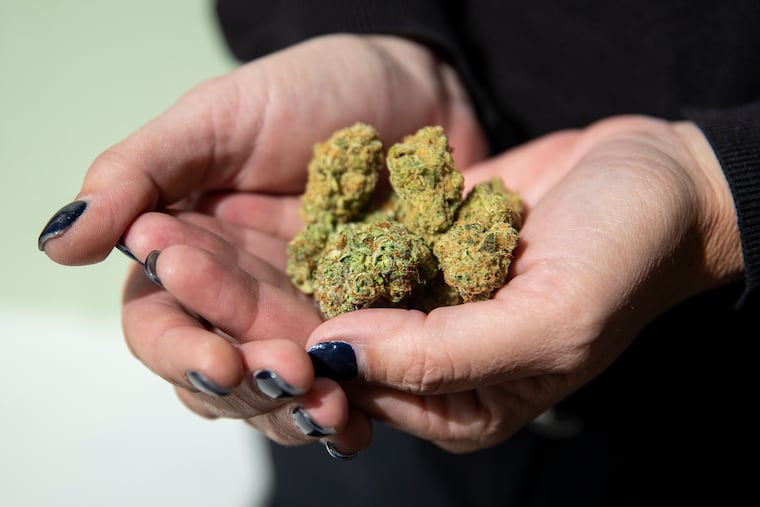Imagine walking into a Pennsylvania State Store — not for wine, but for weed.
That’s the vision behind a newly passed bill in the state House, which proposes legalizing recreational marijuana and selling it exclusively through state-run cannabis shops. Modeled after the Fine Wine & Good Spirits stores, the proposal would make Pennsylvania one of the only states in the country to operate a government-controlled retail marijuana system.
The bill, sponsored by Rep. Dan Frankel (D., Allegheny) and Rep. Rick Krajewski (D., Philadelphia), passed the House in a narrow 102-101 vote on May 7. It’s unlikely to become law — the Republican-controlled Senate has shown little interest in legalizing recreational cannabis — but it marks the first time a recreational marijuana bill has cleared a chamber of the state legislature.
Unlike Pennsylvania’s medical marijuana program or recreational systems in states like New Jersey, where private dispensaries dominate the market, the proposed legislation would give the state complete control over retail sales. That means no privately owned dispensaries and likely no flashy storefronts — just state-run shops, stocked and overseen by the government.
What would a state-run cannabis store look like?
Though the bill faces long odds in the Senate, it offers a preview of how recreational weed could work in Pennsylvania — and what it might look like if the Liquor Control Board ran cannabis sales.
For starters, the cannabis market would be overseen by the Pennsylvania Liquor Control Board, which would set product prices — not individual businesses. The board would also determine where stores could operate, and some Fine Wine & Good Spirits locations could be converted into hybrid shops selling liquor and cannabis.
The bill includes purchase limits for recreational weed, as most legal states do, though Pennsylvania’s proposed caps would be more restrictive than those in New Jersey, New York, or California.
Notably, private citizens and businesses would not be allowed to apply for or operate cannabis retail stores — a restriction that has drawn criticism from legalization advocates and business groups. However, Pennsylvanians age 21 and older could apply for a “home cultivation” permit to grow a small amount of marijuana for personal use, something still not permitted in New Jersey.
While the bill’s retail structure stands out, many of its other provisions — including how cannabis would be cultivated and manufactured — mirror systems already in place in other legal-weed states.
» READ MORE: When will recreational weed be legal in Pennsylvania? The wait isn’t over.
Why are lawmakers proposing a state-run weed industry?
The bill’s sponsors, Krajewski and Frankel, have argued that leaning into Pennsylvania’s nearly century-old liquor store system could help streamline the path to legalization by using a framework both lawmakers and residents are already familiar with. It also protects the smaller, independent entrepreneurs, who in other states have found themselves in debt from attempting to open dispensaries, Krajewski told The Inquirer in March.
“It’s an extremely difficult market to compete in, particularly if you’ve been directly impacted by the War on Drugs,” Krajewski said. “Many people are told this kind of pipe dream that, ‘You’re going to make it big, open a dispensary,’ and then smaller operators fall into cycles of debt or they’re bought out by big investors who can withstand the turbulence of a newly legalized market.”
Still, the proposal has drawn pushback from some legalization advocates. Pennsylvania’s chapter of the National Organization for the Reform of Marijuana Laws (NORML) said it sent 1,000 letters from residents urging lawmakers to reject a state-store-only model. Critics say it would sideline small and Black-owned businesses from participating in the legal market.
“The reality is that small-business owners, for the most part, get the retail store and the delivery permits,” said Chris Goldstein, NORML’s regional organizer. “They don’t have the capacity to start growing cannabis or get into the manufacturing side, but they can afford to rent a storefront and make the investments in retail to comply with state law.”
Will this recreational weed bill become law?
Probably not — at least not yet.
In March, Senate Majority Leader Joe Pittman (R., Indiana) told The Inquirer that the Republican caucus is not ready to support recreational cannabis legalization. Senate President Pro Tempore Kim Ward (R., Westmoreland) has also expressed reluctance, citing marijuana’s federal status and concerns over how the state’s medical program was implemented.
“In Pennsylvania, we already have a medical marijuana program in place which was not implemented well and could benefit from potential changes to make that program more airtight, efficient, and productive,” Pittman said.
For now, nearly 500,000 Pennsylvanians are registered medical marijuana patients and are served by more than 180 dispensaries across the state. Recreational use remains illegal — but this latest vote marks a shift in how some lawmakers are beginning to envision the future of cannabis in the Commonwealth.
A new bill proposes selling recreational cannabis through Pennsylvania’s state-run liquor system. It’s unlikely to pass — but here’s what that could actually look like. Read More


